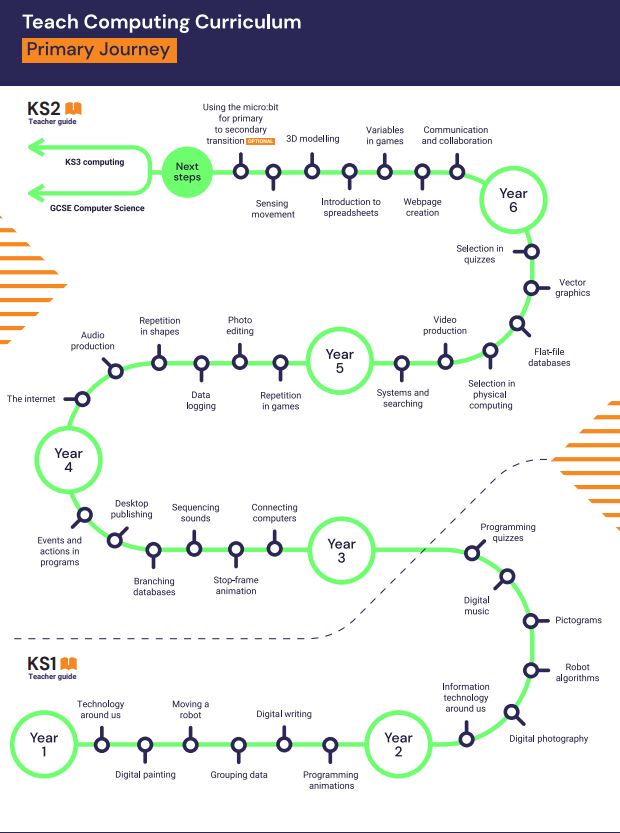Computing
Intent
“We’re changing the world with technology.”
Bill Gates
At Bader, we aspire for children to be determined and independent when exploring our progressive Computing curriculum, which is ambitious for all pupils. We want children’s learning to be purposeful, building skills for the future, to respectfully and safely engage in an ever-changing digital world, using technology in a creative and positive way.
Implementation
Computing in Early Years:
Computing in Early Years is based around enjoyable, practical activities linked to computational thinking concepts and approaches. These help to teach children problem solving skills needed for everyday life, and prepare them for the skills which they will acquire through Key Stage 1 and 2. The activities are collaborative and cross-curricular, linked to relevant themes for time of year, for example, Awesome Autumn, Winter Warmers and Summer Fun.
Computing in Key Stage 1 and Key Stage 2
In Key Stage 1 and 2, we use the Teach Computing resources which are grounded in the latest research. This process allows children to learn specific vocabulary throughout their learning, independently explore the technology required for the unit for themselves and develop key aspects of the national curriculum. In Key Stage 2, children build on and develop the complexity of the skills, which they have gained in Key Stage 1. All activities are stored on Seesaw to encourage children to use the tools and accessibility features to present their learning in a variety of ways. Our units are carefully sequenced to match with our whole-school topic overview and different events throughout the year, ensuring that computing is integrated within broader educational themes. This cross-curricular approach allows us to draw connections between computing and other areas of our curriculum, making learning engaging and relevant for our students.
Online Safety is embedded into our curriculum throughout the year. We use Project Evolve resources which link to ‘Education for a Connected World’ framework. These are delivered every lesson to sure children grow into responsible digital citizens. We celebrate Safer Internet Day annually to raise awareness of safe and responsible internet use. This day includes whole school activities and assemblies led by our Digital Leaders to promote the importance of staying safe online.
Through these implantation strategies, we support children to develop into confident, safe digital users linked to our school values and school rules of Ready, Respectful and Safe.
Impact
At Bader, children are determined and independent digital citizens. Children learn purposeful skills for the future and respectfully and safely engage in an ever-changing digital world. Children understand the consequences of using the internet and they are aware of how to keep themselves safe online.
We measure the impact of our curriculum through the following methods:
- Photo evidence and images of the pupils’ practical learning on Seesaw.
- Summative assessment of final project and their evaluations.
- Pupil discussions and interviewing the pupils about their learning (pupil voice).
- Opportunities for dialogue between teachers and parents in order to keep children safe online at home as well as in school.
Topic Overview

Online Safety Newsletter

